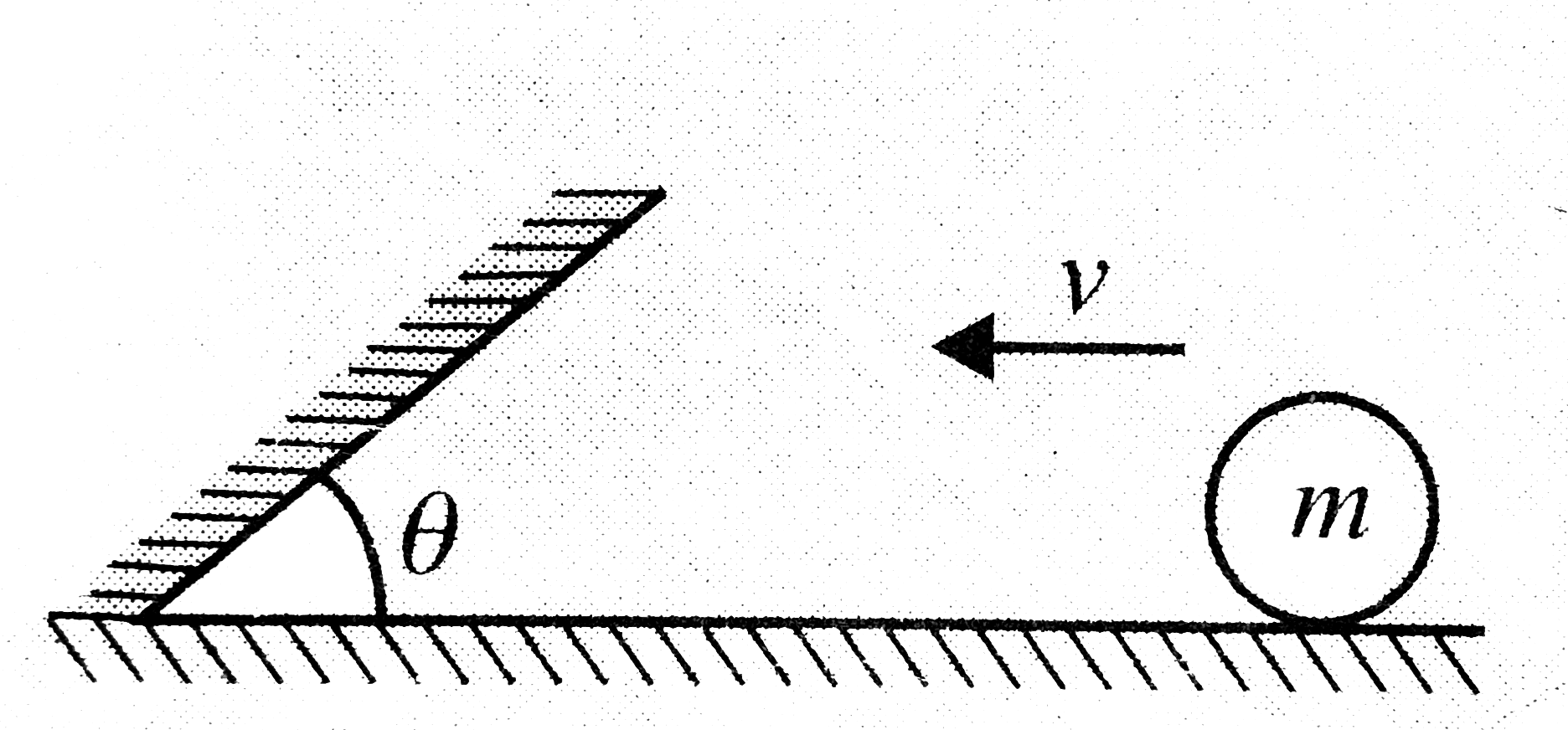A boby is moving in a room with a velocity of 20m/s perpendicular to the two walls separated by 5 meters .There is no friction and the collisionnn with the walls are elastic.
Not periodic
Periodic but not simple harmonic
Periodic and simple harmonic
Periodic with variable time period
The correct Answer is:B
Body collides elastically with walls of room. So, there will be no loss in its energy and it will remain colliding with walls of room after a regular time interval, so it.s motion will be periodic. Since acceleration is not proportional to displacement, so it.s motion in not SHM.
Topper's Solved these Questions
- BOOK - ERRORLESSCHAPTER - SIMPLE HARMONIC MOTIONEXERCISE - NCERT BASED QUESTIONS (Time Period and Frequency)7videos
SIMPLE HARMONIC MOTION
- BOOK - ERRORLESSCHAPTER - SIMPLE HARMONIC MOTIONEXERCISE - NCERT BASED QUESTIONS (Simple Pendulum)27videos
SIMPLE HARMONIC MOTION
- BOOK - ERRORLESSCHAPTER - SIMPLE HARMONIC MOTIONEXERCISE - NCERT BASED QUESTIONS (Acceleration of Simple Harmonic Motion)11videos
SIMPLE HARMONIC MOTION
- BOOK - ERRORLESSCHAPTER - ROTATIONAL MOTIONEXERCISE - Assertion & Reason25videos
ROTATIONAL MOTION
- BOOK - ERRORLESSCHAPTER - SURFACE TENSIONEXERCISE - ASSERTION & REASON11videos
SURFACE TENSION
Similar Questions
0A body of mass 20 kg moving with a velocity of 3 m/s, rebounds on a wall with same velocity. The impulse on the body is -
View SolutionTwo particles A and B separated by 10 m at time t=0 are moving uniformly. A is moving along line AB at a constant velocity of 4m/s and B is moving perpendicular to the velocity of A at a constant velocity of 5m/s. After what time the two particles will be nearest to each other?
 View Solution
View Solution
Knowledge Check
- Question 1 - Select One or More
A vessel contains 6×1026 molecules m−3. Mass of each molecule is 6×10−27kg. Assume that, on an average, one-sixth of the molecules move with a velocity103 m/s perpendicularly towards each wall. If the collisions with the walls are perfectly elastic, then which of the following is correct?
AChange in momentum of each molecule is 12×10−24 kg m/s in each collisionBThe number of molecules hitting normally to1 m2 of the wall per second is 1029CTotal change in momentum of all molecules per second is1031 SI unitsDThe number of molecules hitting one square metre of the surface is 6×1029 - Question 2 - Select One
A wall moving with velocity 2cms−1 towards the ball and ball is moving towards the wall with a velocity 10cms−1. It hits the wall normally and makes elastic collision with wall. The velocity of ball after collision with wall in cms−1.
A12B8C14D16 - Question 3 - Select One
A bead of mass m and diameter d is sliding back and forth with velocity v on a wire held between two right walls of length L. Assume that th ecollisions with the wall are perfectly elastic and ther is no friction. The average force that the bouncing bead exerts on the one of the walls is :_
Amv2L−dBmv2L+dC2mv2L−dD2mv2L+d
A sphere of mass m slides with velocity v on as frictionless surface towards a smooth inclined wall as shown in figure. If the collision with the wall is perfectly elastic find a. the impulse imparted by the wall on the sphere b the impulse imparted by the floor on the sphere.
 View Solution
View SolutionA source of sound of frequency 256 Hz is moving towards a wall with a velocity of 5 m/s. How many beats per second will be heard by an observer O standing in such a positoin that the source S is between O and wall? (c=330ms)
View SolutionA bullet hits a wall with a velocity of 20 m/s and penetrates it up to a distance of 5 cm. Find the deceleration of the bullet in the wall.
View SolutionA parallel beam of particles of mass m moving with velocity v impinges on a wall at an angle θ to its normal. The number of particles per unit volume in the beam is n. If the collision of particles with the wall is elastic, then the pressure exerted by this beam on the wall is
View SolutionAn engine driver moving towards a wall with a velocity of 60 m/s emits a note of 1400 Hz. Speed of sound in air is 340 m/s .The frequency of the note after reflection from the wall as heard by the engine driver is
View Solution
